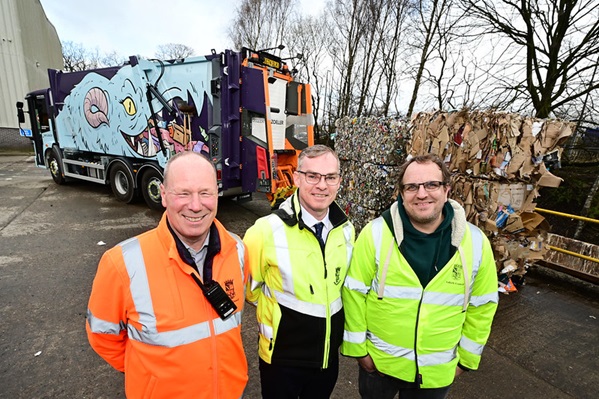‘Bin Diesel’ and ‘Binfluencer’ hit the road to power up commercial waste collections

Two bold new monster trucks - Bin Diesel and the Binfluencer - roared into action this week and are set to transform commercial waste collection across the area.
With their striking visual wraps and cutting-edge onboard technology, the trucks mark a major milestone in a wider seven-year rolling programme to modernise the Council’s refuse collection fleet.
This latest investment enhances the effectiveness, visibility, and sustainability of the Commercial Trade Waste Service and is expected to support further growth through increased trade customer uptake.
Serving over 850 businesses and schools, the new vehicles have been designed to differentiate the commercial fleet from domestic services, making it easier for customers and the public to recognise the specialised service.
Chosen through a school-wide naming competition, Bin Diesel (general waste) and Binfluencer (recycling) will also support waste education by visiting local schools, helping to make recycling lessons more engaging and memorable for pupils.

Councillor Bryan Deakin, portfolio holder for Climate Change:
This is about more than upgrading trucks through our seven year rolling programme. Bin Diesel and the Binfluencer show how we’re investing in cleaner, smarter waste services while making sustainability fun and visible for the whole community.
“The new monster trucks have advanced onboard weighing systems which will enable more accurate billing and open opportunities for data-led service improvements and future innovation.
The monster trucks are fuelled by Hydrotreated Vegetable Oil (HVO), a renewable fuel made from waste or residue oils and fats, offering a cleaner alternative to traditional fossil diesel with potential for significant greenhouse gas emission reductions.